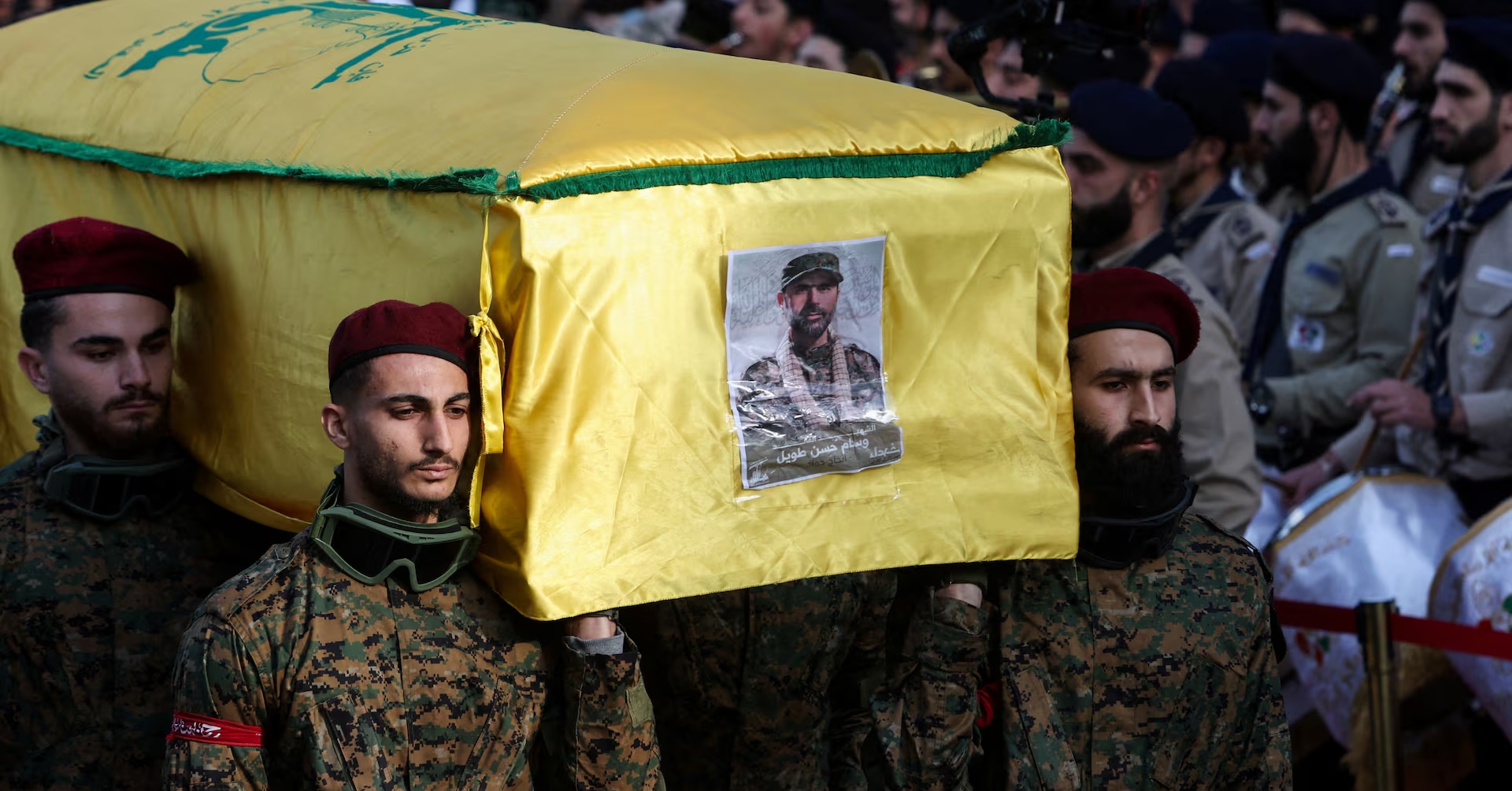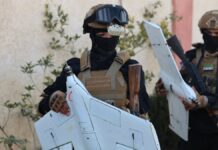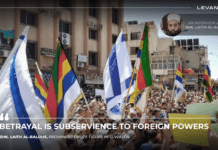
The Israeli army announced the killing of Ali Jamal al-Din Jawad, leader of Hezbollah’s elite Radwan Unit, in a bombing that targeted a Hezbollah site in southern Lebanon. The strike, which Israel claims “significantly affects the capabilities of Hezbollah,” has escalated regional tensions and drawn sharp reactions.
Hezbollah confirmed the death of Jawad, also known by his nickname “Karbala,” born in 1987, following the Israeli raid on the town of Aba. This announcement came shortly after Hezbollah mourned another of its fighters, Ali Ghaleb Shuqair, nicknamed “Jihad,” who was born in 1996 and hailed from the town of Mays al-Jabal in southern Lebanon.
The Lebanese Ministry of Health reported yesterday, August 5, that Israeli strikes in southern Lebanon resulted in the deaths of three individuals, including a paramedic mourned by his association and two Hezbollah fighters, amidst ongoing cross-border bombings and mounting fears of a broader regional conflict. The Ministry noted that Israeli artillery had bombed the outskirts of Kafr Shuba and Kafr Hamam, and warplanes conducted three raids on Kafr Kila. Additionally, drones targeted a motorcycle between the towns of Jabshit and Aba in the Nabatieh district, killing one person.
Among the casualties was Muhammad Fawzi Hammadi, a paramedic who was killed by an Israeli drone near a cemetery in Mays al-Jabal. The Ministry of Health also reported that a woman miscarried due to the shock and fear from the bombings.
This latest attack occurs amidst heightened anticipation of a major military response from Iran and Hezbollah following the assassinations of Hamas political bureau leader Ismail Haniyeh in Tehran and Hezbollah leader Fouad Shukr in Beirut’s southern suburbs. Iran has signaled that it expects Hezbollah to target deep inside Israel in retaliation.
As Israeli attacks continue in Palestine, Lebanon, Syria, and other occupied territories, regional powers, including Lebanon, Syria, Iraq, Egypt, and Turkey, have proposed the Jerusalem Charter to counter Israeli aggression. Devlet Bahceli, leader of Turkey’s National Movement Party, has called for Turkey to spearhead this initiative.
Bahceli underscored the urgency of regional unity against Israeli actions, stating, “It has become necessary for all countries in the region to stand on their feet and use their capabilities and resources for the future of their people instead of the policies drawn up by imperialist countries.” He emphasized the importance of establishing the Jerusalem Charter for sustainable peace and stability in the Middle East, condemning Israel’s actions in Gaza as genocidal and a severe human rights violation.
He further warned that continued Israeli aggression could lead to a global or regional war, advocating for an immediate ceasefire and subsequent steps toward lasting peace. Bahceli reiterated Turkey’s longstanding support for the establishment of an independent Palestinian state with East Jerusalem as its capital within the 1967 borders and called for robust regional solidarity to ensure the rights and dignity of all peoples in the Middle East.








